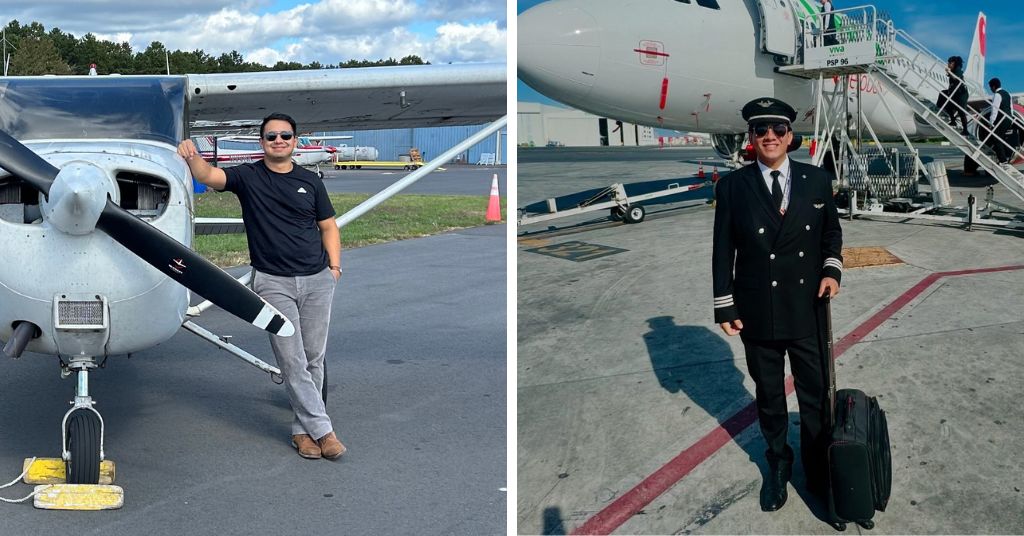For anyone passionate about flying, earning a pilot’s license is a major accomplishment. But as you progress through your aviation journey, you’ll quickly discover that not all pilot certifications are created equal. Two of the most common — and often misunderstood — are the Private Pilot Certificate and the Commercial Pilot Certificate. While they share foundational skills, the differences in training, privileges, and career opportunities are significant.
Let’s break down how these two certifications differ and how to choose the path that best aligns with your goals as a pilot.
Private Pilot Certificate: The Foundation of Flight
The Private Pilot Certificate (PPL) is often the first major step in a pilot’s training journey—a true gateway to the skies. With this license, you gain the legal ability to operate an aircraft for personal or recreational purposes. However, a PPL comes with limitations, especially when it comes to commercial opportunities.
What You Can Do with a Private Pilot Certificate:
- Fly solo or carry passengers (but not for compensation or hire)
- Share flight expenses with passengers
- Fly during the day or night and in various airspace classes, with proper endorsements
- Travel cross-country and explore new destinations
Private pilots enjoy the freedom of flying for personal enjoyment or transportation. Whether it’s a weekend getaway, visiting friends and family, or simply enjoying the view from above, a PPL opens the door to countless memorable experiences.
That said, the Private Pilot Certificate is not a professional-level credential. While it is excellent for building fundamental skills and helps gain valuable airmanship and confidence, it does not authorize paid flying or equip you with additional skills. Insurance rates may also be higher for newer pilots, and further certification is required to pursue a career in aviation.
Commercial Pilot Certificate: Turning a Passion for Flying Into a Professional Skill Pilot
For those looking to turn their love of aviation into a career or wanting to expand their training and skills, the Commercial Pilot Certificate (CPL) is the logical next step. While it builds on the same foundational principles as the PPL, earning a CPL involves more advanced training and a higher level of proficiency. More than just a credential, it’s your gateway to professional flying opportunities and becoming a safer pilot.
Key Benefits of a Commercial Pilot Certificate:
- Receive advanced training in complex aircraft operations, emergency procedures, precision maneuvers, and flight planning
- Legally earn income as a pilot
- Operate for hire in a variety of roles—charter services, aerial photography, cargo transport, flight instruction, and more
- Often qualify for lower insurance rates due to increased training and demonstrated proficiency
Commercial pilot training sharpens your abilities through rigorous coursework and flight time with more advanced training.
Also, a CPL allows you to be compensated for your flying. Whether it’s charter flights, agricultural operations, aerial surveying, or search and rescue missions, the Commercial Pilot Certificate unlocks a host of career possibilities and opportunities.
Training Requirements: Private vs. Commercial
The difference between a PPL and a CPL goes beyond privileges — it lies in the depth and intensity of training required.
Private Pilot Training Includes:
- A minimum of 40 flight hours (though most pilots average 60–70 hours)
- Basic flight maneuvers and emergency procedures
- Cross-country flying and night operations
- Ground instruction covering regulations, navigation, and weather theory
Commercial Pilot Training Adds:
- A minimum of 250 total flight hours
- Advanced maneuvers such as chandelles, lazy eights, and steep spirals
- Proficiency in complex aircraft systems and emergency scenarios
- Precision landings, navigation in challenging environments, and systems management
- Emphasis on decision-making and risk management under pressure
In short, commercial pilot training builds on the solid foundation of your private certificate and turns you into a more capable, safe, confident aviator ready for more responsibilities.
Insurance Advantages
An often-overlooked benefit of earning your CPL is the potential for lower insurance premiums. Insurers tend to view commercial pilots as lower-risk clients due to their extensive training and proven proficiency. Whether you’re insuring your own aircraft or flying under an employer’s policy, holding a CPL often opens the door to better rates.
Earning Potential and Career Opportunities
The most immediate and significant benefit of earning your Commercial Pilot Certificate is the ability to earn a living doing what you love. Unlike private pilots, who fly solely for personal enjoyment or transportation, commercial pilots can pursue careers in a variety of sectors.
Opportunities include:
- Charter flights: Flying clients to destinations on demand
- Aerial survey and photography: Capturing images and data from the air
- Cargo transport: Moving freight for logistics companies
- Agricultural flying: Conducting crop dusting or seeding flights
- Flight instruction: Teaching the next generation of pilots
A Commercial Pilot Certificate is also a critical stepping stone toward airline transport pilot (ATP) certification, which is required for flying scheduled airline routes. For those aiming to fly for a major airline, earning a CPL is a milestone worth celebrating.
Conclusion: Which Path Is Right for You?
Both the Private and Commercial Pilot Certificates offer unique and rewarding opportunities in the world of aviation. If you’re seeking personal freedom and adventure, the Private Pilot Certificate gives you the flexibility to explore the skies on your terms. On the other hand, if your dream is to turn aviation into a rewarding career or you want to become a better pilot, the Commercial Pilot Certificate provides the advanced skills, professional recognition, and earning potential to take you there.
At American Flyers, we’re here to guide you every step of the way. Our expert instructors and personalized training programs ensure that whether you’re starting with your private license or working toward your commercial certification, you’ll receive the highest level of education and support.














